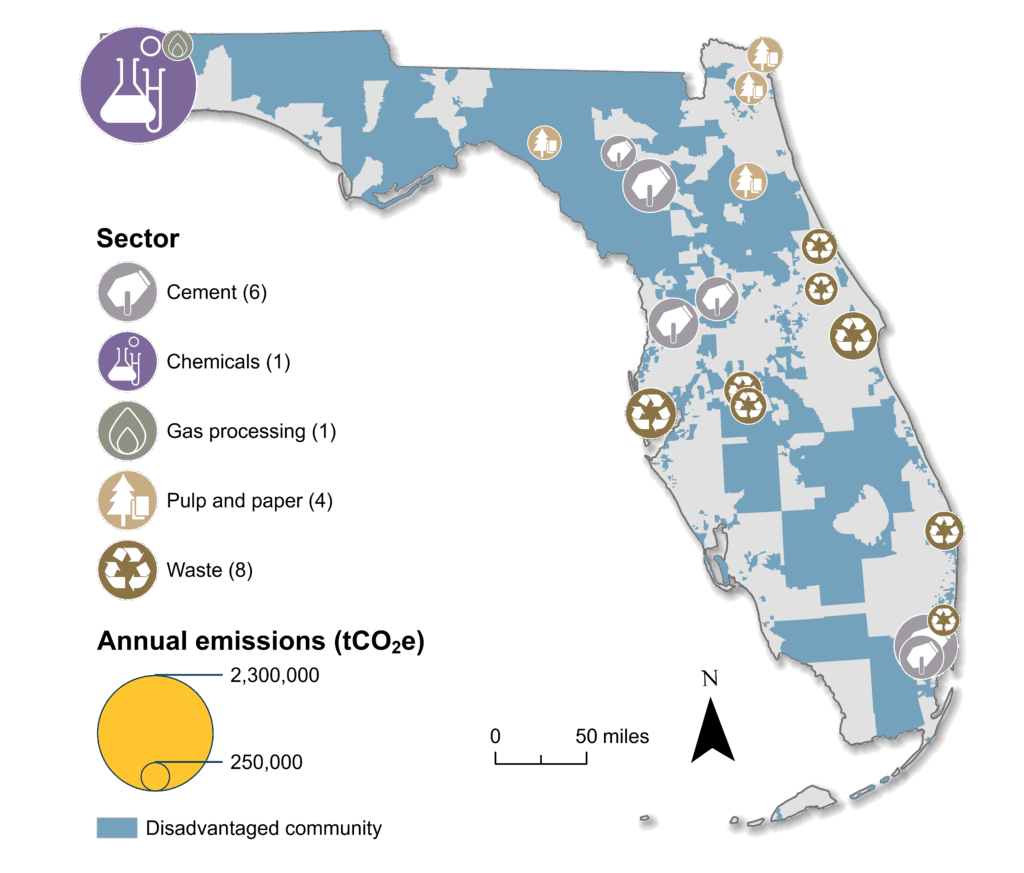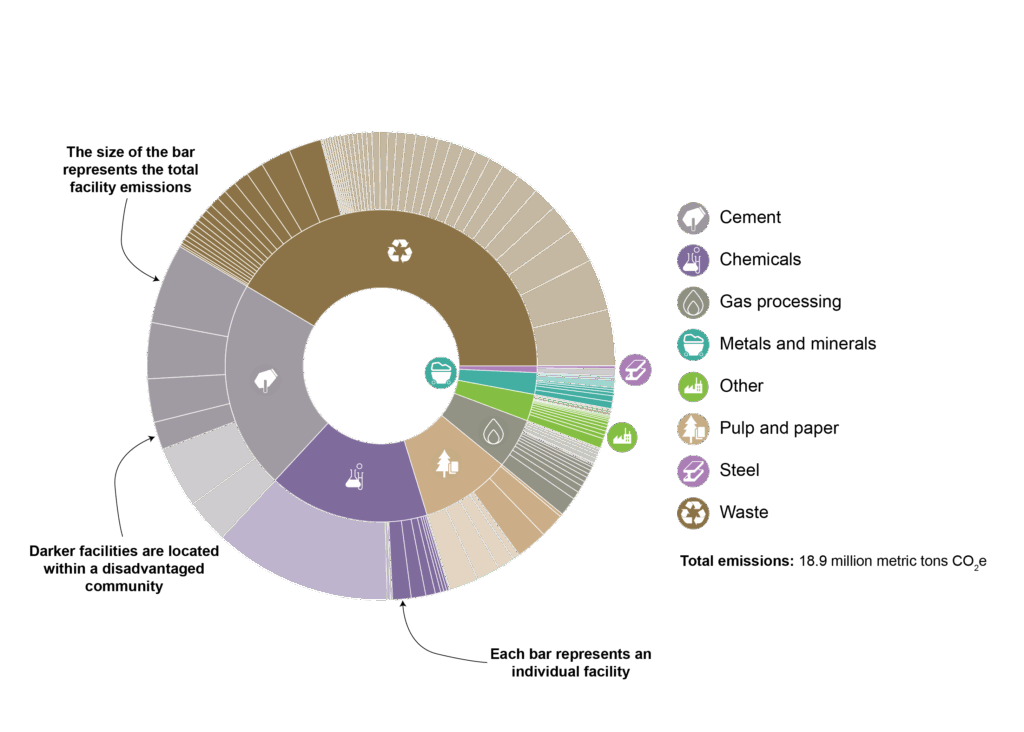Florida
Florida ranks 20th in industrial emissions. Excluding power plants, more than 80 percent of industrial emissions come from wastes, minerals, and chemical production. Florida is also a major pulp and paper producer. Industry is concentrated in the southeastern and northeastern parts of the state and on the Gulf Coast in the Tampa Bay area.

- The top 20 emitters are shown on this map, coded by industrial sector. The size of the circles corresponds to emissions: the larger the circle, the higher the emissions.
- Disadvantaged communities (as determined by the federal government) are shaded blue.

- The inner circle provides a visual representation of the share of emissions generated by each industrial sector.
- The outer circle also indicates the share of a sector’s emissions generated in disadvantaged communities.
STATE ENERGY POLICY:
Considering a state’s broader energy policy landscape is helpful when developing policies to support industrial modernization. Florida has established executive greenhouse gas emissions targets. Florida has not established an electricity portfolio standard or a clean heat standard. While these formal commitments are not prerequisites for innovative industrial policy, they can provide a supportive framework. In addition, streamlining permitting and establishing an efficient, transparent appeals process that engages local communities early while giving clarity and assurances to project developers are key components of effective state energy policy. Discussions around innovative industrial policy present an opportunity for broader conversations about state energy policy to ensure a mutually reinforcing strategy.
LEGISLATIVE context & opportunity:
Let us know if you are aware of additional legislation advancing industrial innovation in Florida that should be featured. The context below is not exhaustive and serves as an example of recent policies and programs and where there may be future opportunities:
- A factsheet by the Renewable Thermal Collaborative identifies electrification of Florida’s pulp and paper, container glass, and plastic recycling subsectors as opportunities to reduce emissions significantly.
- Florida has recently considered several bills related to the state’s renewable energy goals (H.B. 621 and S.B. 1496) and carbon management (H.B. 1063 and S.B. 1148). If enacted or reintroduced, these bills could provide vehicles or direction for innovative industrial policy, including green hydrogen for industrial applications.
Explore recent legislation in Florida and all 50 states by clicking on a specific year: 2025 legislation, 2024 legislation, 2023 legislation.
